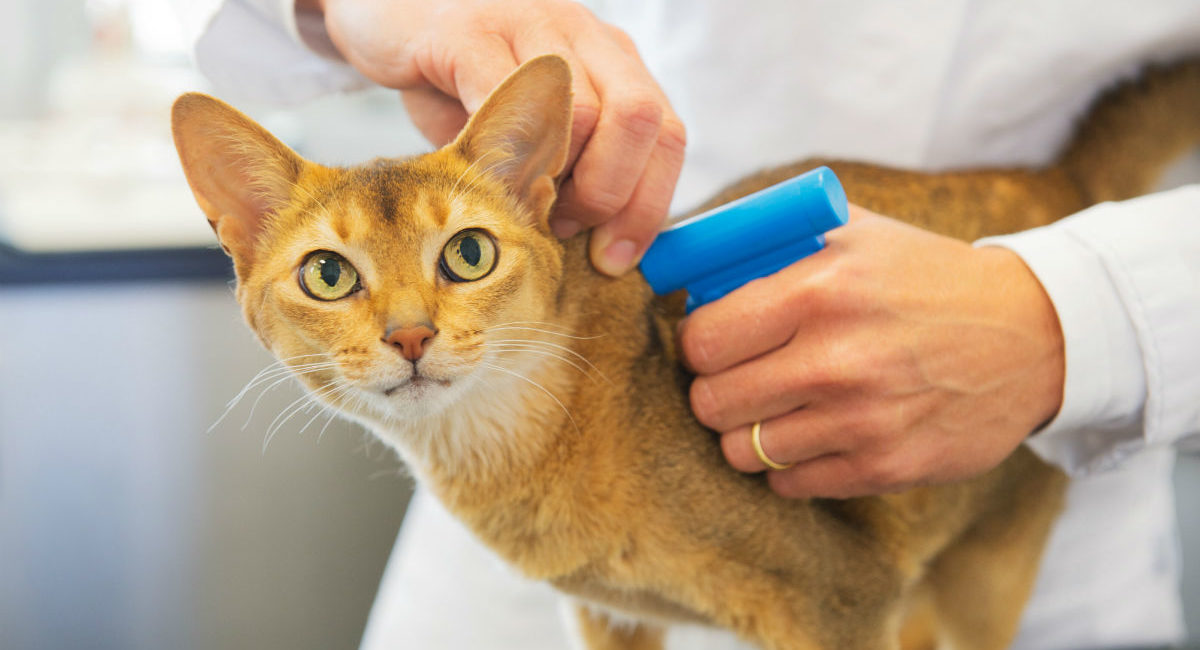Recently I heard someone mention that “rabies is extinct and no longer exists.” Unfortunately, as much as we would love for that to be true, it just isn’t. Rabies is still a very real issue here in Canada. Last year, in 2017, there were 149 positive cases of rabies in Ontario alone, with 90 other positive cases throughout the rest of the country. Among the 149 Ontario cases, 1 of those positives was a cat, with the most cases coming from raccoons, skunks, and bats. Throughout Canada, there are many more positive cases that involve dogs, cows, and arctic foxes.
The most frequent question we get from owners is:
Question: “My cat is indoors only. Do they really need to be vaccinated for rabies?”
Answer: Even though your cat may not go outside, that doesn’t mean that the outside can’t still come in. Even with our best efforts, wildlife can sometimes find their way inside. Bats might make their way into rafters and then eventually all the way indoors. Raccoons sneak their way into garages to rummage through garbage bins. Even if you’re positive that your house is completely wildlife proof, accidents still happen. It’s possible for doors to get left open long enough for a curious cat to sneak out. They may only be out for a few hours or a couple days but during that time there is a risk that they may be exposed to an animal with rabies.
Your indoor cat should still be making annual trips to their veterinarian to have a physical examination done with their vaccines. Trips to the vet clinic can be stressful for your cat and even the most well-mannered cats can become frightened. For some cats, when they are nervous, their first response can be to bite or scratch. Any bites are required to be reported to the health unit. If the cat is not up to date on their rabies vaccine, they must be quarantined for 10 days to observe for symptoms of rabies. Some other important things to remember are:
- Rabies is local. Rabies isn’t just on the far outskirts of Ontario and Canada, its local! Over the past couple of years, there have been multiple positive cases locally. In August of 2016, Hamilton had a positive case of rabies in a cat and another positive case in February of 2017. Even closer to home, a bat tested positive in Brighton in July 2015.The best way to protect your pet is to get them vaccinated. Stay away from wildlife and report any bites or scratches to your local Health Unit.
- Vaccines are required by law. Vaccine protocols may be tailored by your veterinarian to suit your pet’s lifestyle but rabies is not an optional vaccine. All dogs, cats and ferrets above the age of three months are required by the Rabies Immunization Regulation under the Health Protection and Promotion Act to be vaccinated for rabies. Rabies is fatal in animals and if not treated immediately, it is also fatal in humans as well. Why take the risk? Vaccination is the best prevention you can offer for your pet. If you have questions in regards to rabies and your pet contact us at the office and we are happy to help answer them!
Written by Kelsey Hewgill, RVT




